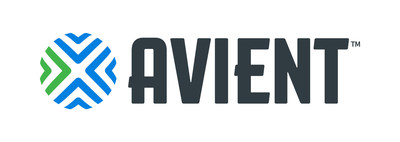Advanced Composites from Avient: Lightweighting Solutions for Fuel Efficiency
Avient Corporation (NYSE: AVNT) is leading the lightweighting trend, helping manufacturers reduce weight in transportation to improve sustainability and fuel efficiency. Advanced composite materials are replacing traditional metals and woods, providing better strength-to-weight ratios and versatility. Notable applications include Polystrand™ panels for trucks, Complēt™ composites for light aircraft, and Glasforms™ CRTM™ panels for railcars. Avient expects double-digit growth for its composites portfolio, supported by an estimated revenue of $4.3 billion in 2021.
- Avient is at the forefront of the lightweighting trend, enhancing sustainability in transportation.
- The company reports increased demand for advanced composite technologies, indicating strong market potential.
- Expected double-digit annual growth in the composites portfolio, signaling robust business prospects.
- None.
Insights
Analyzing...
CLEVELAND, May 25, 2021 /PRNewswire/ -- Manufacturers around the world have embraced lightweighting to improve sustainability in all modes of transportation including automobiles, railcars, aircrafts, off-road vehicles and marine applications. Lightweighting involves removing weight without sacrificing strength or performance, which in turn, raises fuel efficiency and reduces carbon emissions.
Avient Corporation (NYSE: AVNT) is at the forefront of this trend, enabling replacement of metal or wood with advanced composite materials that are prized for their exceptional strength-to-weight ratio, durability, dimensional stability and corrosion resistance.
"A primary goal among OEMs today is to improve fuel efficiency and reduce carbon emissions. Lightweighting is an effective means to do this," said Walter Ripple, Vice President of Sustainability at Avient Corporation. "As a result, we're seeing increased demand for our advanced composite technologies, which not only provide excellent performance but also are extremely versatile and offer a great deal of design freedom."
A few examples beyond traditional automotive applications include:
- Polystrand™ panels are featured in all-composite medium-duty trucks and trailers that reduce weight by 45 percent versus traditional materials and are completely recyclable.
- Complēt™ long fiber-reinforced structural composites replace aluminum in light aircraft seats and spacers, resulting in a 40 percent weight reduction.
- Hammerhead™ marine composite panels reduce weight and increase durability versus wood in structural boat-building components, such as stringers and subfloors.
- Glasforms™ CRTM™ composite panels replace steel doors on railcar auto carriers, saving up to 300 lb. per railcar.
"Composites represent the next frontier of material replacement and we continue to invest in both the underlying technologies and commercial resources to meet our customers' toughest sustainability challenges," said Robert M. Patterson, Chairman, President and CEO, Avient Corporation. "As a result, our composites portfolio continues to be a key area of growth that we expect to expand double digits annually in the years to come."
About Avient
Avient Corporation (NYSE: AVNT), with estimated 2021 revenues of
- Barrier technologies that preserve the shelf-life and quality of food, beverages, medicine and other perishable goods through high-performance materials that require less plastic
- Light-weighting solutions that replace heavier traditional materials like metal, glass and wood, which can improve fuel efficiency in all modes of transportation
- Breakthrough technologies that minimize wastewater and improve the recyclability of materials and packaging across a spectrum of end uses
Avient employs approximately 8,400 associates and is certified ACC Responsible Care®, a founding member of the Alliance to End Plastic Waste and certified Great Place to Work®. For more information, visit www.avient.com.
To access Avient's news library online, please visit www.avient.com/news.
Forward-looking Statements
In this press release, statements that are not reported financial results or other historical information are "forward-looking statements" within the meaning of the Private Securities Litigation Reform Act of 1995. Forward-looking statements give current expectations or forecasts of future events and are not guarantees of future performance. They are based on management's expectations that involve a number of business risks and uncertainties, any of which could cause actual results to differ materially from those expressed in or implied by the forward-looking statements. They use words such as "will," "anticipate," "estimate," "expect," "project," "intend," "plan," "believe," and other words and terms of similar meaning in connection with any discussion of future operating or financial condition, performance and/or sales. Factors that could cause actual results to differ materially from those implied by these forward-looking statements include disruptions, uncertainty or volatility in the credit markets that could adversely impact the availability of credit already arranged and the availability and cost of credit in the future; the effect on foreign operations of currency fluctuations, tariffs and other political, economic and regulatory risks; the current and potential future impact of the COVID-19 pandemic on our business, results of operations, financial position or cash flows; our ability to achieve the strategic and other objectives relating to the acquisition of Clariant's Masterbatch business, including any expected synergies; changes in polymer consumption growth rates and laws and regulations regarding plastics in jurisdictions where we conduct business; fluctuations in raw material prices, quality and supply, and in energy prices and supply; production outages or material costs associated with scheduled or unscheduled maintenance programs; unanticipated developments that could occur with respect to contingencies such as litigation and environmental matters; an inability to achieve the anticipated financial benefit from initiatives related to acquisition and integration working capital reductions, cost reductions and employee productivity goals; our ability to pay regular quarterly cash dividends and the amounts and timing of any future dividends; information systems failures and cyberattacks; our ability to consummate and successfully integrate acquisitions; and amounts for cash and non-cash charges related to restructuring plans that may differ from original estimates, including because of timing changes associated with the underlying actions. The above list of factors is not exhaustive.
We undertake no obligation to publicly update forward-looking statements, whether as a result of new information, future events or otherwise. You are advised to consult any further disclosures we make on related subjects in our reports on Form 10-Q, 8-K and 10-K that we provide to the Securities and Exchange Commission.
![]() View original content to download multimedia:http://www.prnewswire.com/news-releases/advanced-composites-from-avient-lightweighting-solutions-for-fuel-efficiency-301299141.html
View original content to download multimedia:http://www.prnewswire.com/news-releases/advanced-composites-from-avient-lightweighting-solutions-for-fuel-efficiency-301299141.html
SOURCE Avient Corporation








